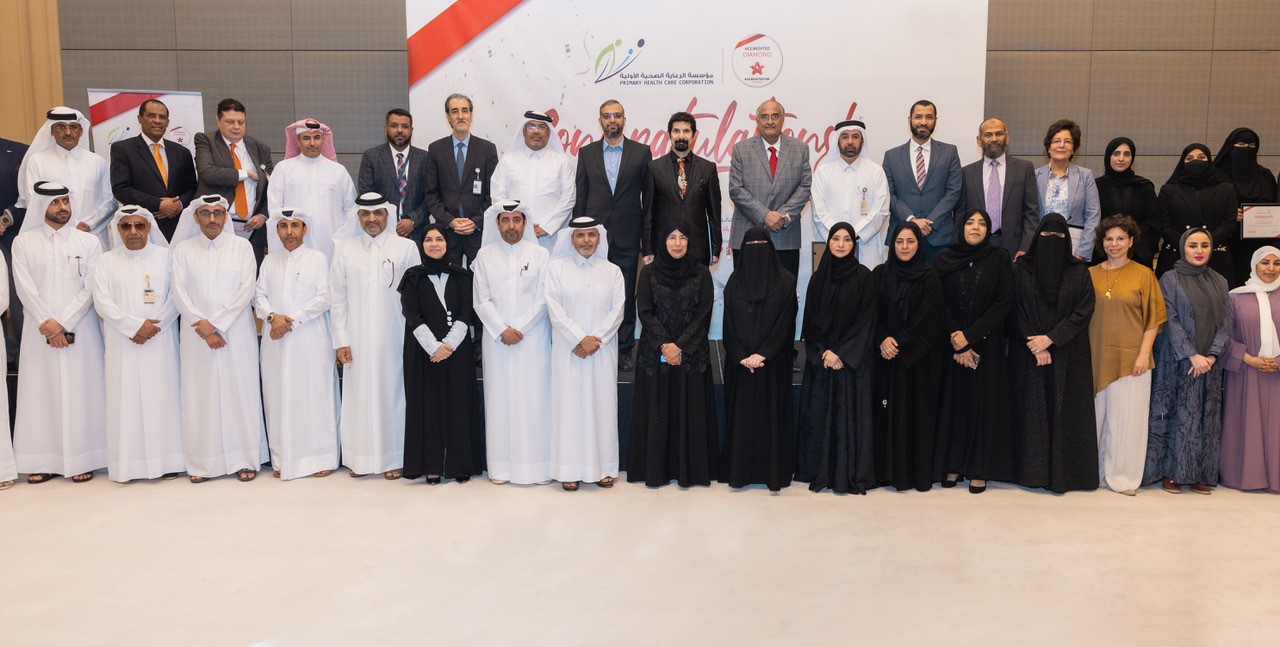Remarkable Success of PHCC Corporate Strategic Plan 2019-2023

The Primary Health Care Corporation (PHCC) announced the achievements of its Corporate Strategic Plan 2019-2023, under the theme “A Healthier Future for Our Communities,” which saw the successful implementation of over 90% of its outcomes. This strategy has been a driving force behind the sustainable development and improvement of primary healthcare services across the country, aiming to enhance the health of the Qatari community.
Dr. Mohamed Ghaith Al Kuwari, Executive Director of Strategy Planning and Health Intelligence at PHCC, highlighted that the previous strategy included ambitious goals to expand primary healthcare services, strengthen the family medicine system, focus on preventive health programs, and increase access to specialized services. These efforts were intended to reduce the need for costly treatments and long-term hospital care.
The strategy also focused on quality improvement initiatives, clinical audits, and the development of the health data system to continuously develop clinical and organizational performance.
Despite the global health challenge posed by the COVID-19 pandemic during the strategy’s implementation, PHCC played a significant role in providing testing and immunization services on a national level.
Among the key achievements of this strategy was the opening of six new health centers in Al Mashaf, Umm Al Seneem, South Al Wakra, Al Sadd, Al Ruwais, and Al Khor. These centers have brought high-quality healthcare closer to communities and expanded the reach of early detection and wellness services, resulting in increased registration and visits to primary health centers.
PHCC also increased the uptake of specialized services from 53% in 2019 to 70% in 2023 and effectively managed 60% of mental health cases within primary health centers as part of the National Mental Health Program under the second National Health Strategy.
Dr. Al Kuwari concluded by highlighting PHCC’s development of a Centralized Health Intelligence (CHI) Framework and the launch of a Centralized Health Portal. This has facilitated easier access to health information, improved health data management, enabled more informed decision-making. The integration of health data systems has led to improved efficiency through faster, more efficient healthcare services, tailored to the needs of the community.
Dr. Maha Yousef Al Abdullah, Manager of Strategy Planning at PHCC, pointed out other key achievements, such as increasing the number of wellness centers to seven, all of which provide comprehensive preventive health services. These include 12 weekly lifestyle clinics and 16 centers dedicated to smoking cessation. Additionally, mental health services have been expanded to 15 centers, and early cancer detection services are now available in five health centers.
PHCC’s efforts to keep the uptake of bowel cancer screening above the national target for five consecutive years have yielded positive results. Early detection of bowel cancer increases treatment success rates and reduces the risk of advanced-stage cancer and complications.
Additionally, 75% of primary schools and 90% of kindergartens participated in the Asnani School Oral Health program. This initiative promoted early oral health awareness among children and fostered healthy dental habits from a young age, reducing future dental issues.
By the end of 2023, 98% of PHCC employees had actively participated in professional development programs and initiatives, which helped enhance the quality of care through well-trained and highly engaged medical staff. This participation also allowed for access to the latest practices and innovations in healthcare, leading to a more efficient and patient-focused healthcare system, driven by staff development.
Among the achievements of the second strategic plan 2019-2023 was the successful completion rate of quality improvement initiatives, which rose from 45% to 79%. This improvement has enhanced healthcare services, patient safety, care quality, and overall patient experience, while ensuring faster and more efficient service delivery.
Dr. Al Abdullah concluded by emphasizing the activation of several virtual services to facilitate access to healthcare, such as telephone consultations, allowing patients to speak with doctors from anywhere, video consultations, the establishment of a call center for instant and easy responses to all inquiries, as well as introducing medication home delivery service.